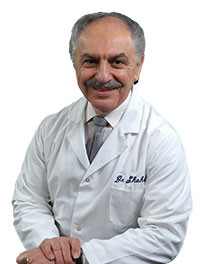Seasonal Affective Disorder Treatment in Midland Park, NJ

Seasonal affective disorder (SAD), also referred to as winter depression, began to gain recognition as an official condition in the mid-1980s. It is accompanied with feelings of depression as the season changes over to fall, and often continues through the winter months.
It's estimated that 20 million Americans suffer from SAD. Of that number, about 20 percent have only a mild version. It's more common among women than men, and usually affects people between the ages of 15 and 55. However, that risk drops with age. It's commonly thought that the farther away you live from the equator, the more likely you are to experience it because of the shorter days and diminished sunlight in the fall and winter months. There are some people whose symptoms are so severe that it negatively impacts their ability to function.
Seasonal Affective Disorder Symptoms
Healthcare professionals aren't certain of the cause of SAD, but lack of sunlight is the most commonly believed cause of the issue, as well as low serotonin and a disrupted circadian rhythm. Some of the symptoms of seasonal affective disorder can include:
- Daily feelings of hopelessness and depression
- Feeling anxious, moody or grumpy
- Crying spells
- Body aches
- Difficulty sleeping or oversleeping
- Changes in appetite and weight
- Cravings for carbohydrates such as pastas and breads and for sweet foods
- Decreased energy level
- Difficulty concentrating
- Feelings of social rejection
- Avoidance of social situations
- In severe cases, thoughts of suicide
Seasonal Affective Disorder Diagnosis
It is difficult to diagnose SAD because the symptoms are so close to other types of depression . However, your healthcare provider may ask:
- Has your depression started at a similar time of the year and ended at a similar time for two years in a row?
- Have you had sleep disturbances, changes in appetite and / or weight?
- Do you have a close relative such as a parent or sibling who has SAD?
Your healthcare provider may choose to have a blood test done to make certain that the issue is not related to your thyroid, hypoglycemia or mono. Your healthcare provider may also suggest a mental health assessment to check your ability to focus, reason and remember.
Seasonal Affective Disorder Treatment
The most common treatment for SAD is light therapy (phototherapy). There are two types of light therapy:
- Bright Light Therapy: Placing a light box at a recommended distance from your desk or table and sitting in front of it as you work, read or eat breakfast.
- Dawn Stimulation: A dim light is preprogrammed to begin in the morning as you sleep, and gets brighter over time, similar to a sunrise.
Antidepressants, talk therapy and cognitive behavioral therapy may also be recommended by your healthcare provider or a combination of therapies. In addition to therapies offered through your healthcare provider, several lifestyle changes can help to lessen the effects of SAD. These lifestyle changes include increasing physical activity, spending more time outdoors and taking certain vitamins and dietary supplements recommended by your healthcare provider.
Request more information about Seasonal Affective Disorder treatment today. Call (201) 806-6099 or contact Dr. M.T. Shahab online.
Medwell Orthopedics & Functional Medicine for Men & Women
Address
33 Central AveMidland Park, NJ 07432
(201) 806-6099
www.BergenCountyDoctors.com
Hours
Mon:
8:00 am - 8:00 pm
Tue:
2:00 pm - 7:00 pm
Wed:
8:00 am - 6:30 pm
Thu:
8:00 am - 1:00 pm
Fri:
8:00 am - 6:30 pm
Sat:
9:00 am - 1:00 pm
Sun:
By Appointment Only


